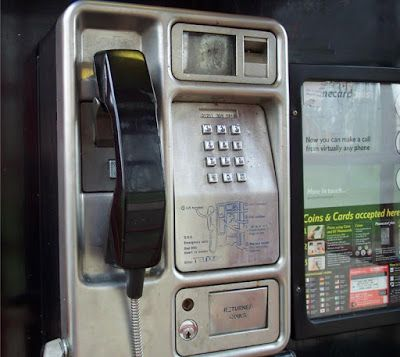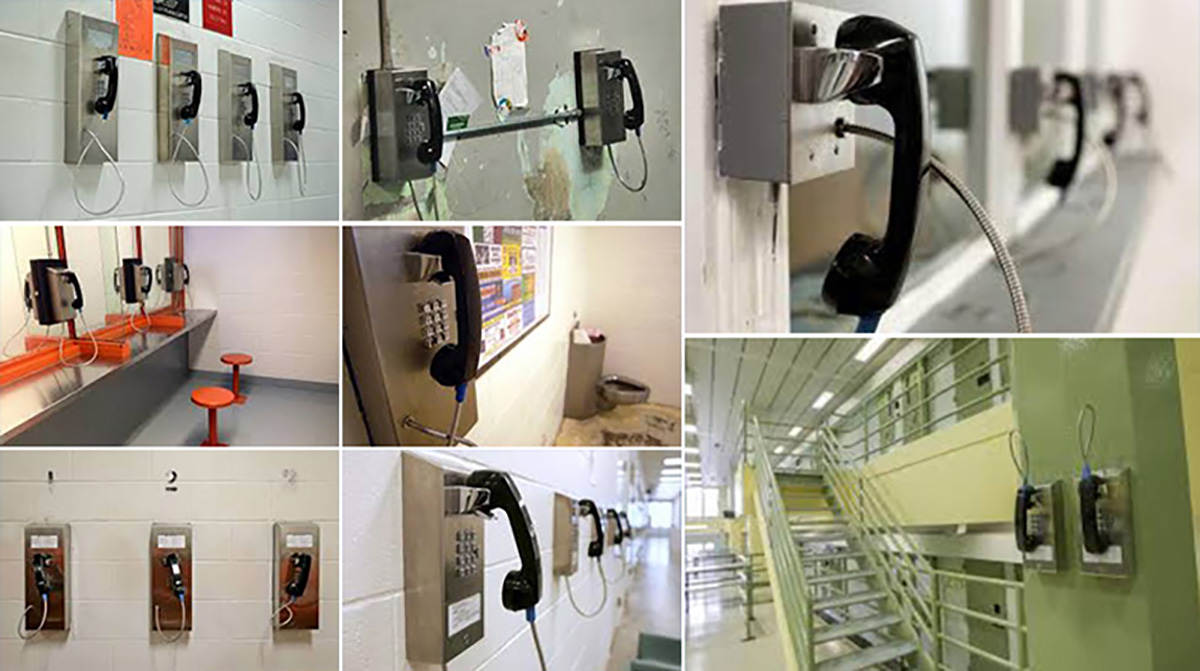
An Industrial Telephone Handset deals with hard conditions daily. Workers need tools that can handle dust, water, and hard hits. Safety is very important when picking a prisoner patient telephone for safe places. People need to talk clearly in far or open areas, so an Outdoor Telephone Handset must work well even in bad weather. Every place needs a handset that does not break easily and helps people stay in touch.
Key Takeaways
- Pick a handset with the right IP rating for your area. IP54 is good for some dust and water. IP67 keeps out all dust and can go in water.
- Choose handset materials that fit your needs. ABS plastic is light and does not get damaged by chemicals. Metal housing is stronger and stops people from breaking it.
- Use noise-canceling microphones to hear better in loud places. This helps keep people safe and makes talking easier at noisy jobs.
- Pick handsets made for hard weather and glove use. They have big buttons and closed cases. This helps them work in rain, dust, and cold.
- Match your handset to your job place, like factories or building sites. This helps you have clear calls, strong phones, and easy use. It also helps teams work better and stay safe.
IP54 vs. IP67: Which Rating Is Best for Rugged Handsets?
IP54 vs. IP67
The IP rating system shows how well a device keeps out dust and water. The first number in the IP code tells how much dust can get in. The second number tells how much water the device can handle. IP54 means some dust can get in, but not a lot. It also means the device can take water splashes from any side. IP67 means no dust can get in at all. It also means the device can go under water up to 1 meter deep for 30 minutes.
A table can make it easier to see the differences:
| Rating | Dust Protection | Water Protection | Typical Use Cases |
|---|---|---|---|
| IP54 | Some dust can get in | Handles water splashes from any side | Indoors, light outdoor, factories |
| IP67 | No dust gets in | Can go under water for 30 minutes | Outdoors, docks, construction |
Environmental Protection
An Industrial Telephone Handset with IP54 works well where there is some dust and water. Workers in factories or warehouses use these handsets. These places have dust and water, but not too much. These handsets keep working if they get a little wet or dusty.
For tougher places, an IP67 Industrial Telephone Handset is better. This rating means the handset can handle a lot of dust. It can also survive if dropped in water. Construction sites, docks, and coastal areas are often wet and dusty. In these places, IP67 handsets help people talk, even in storms or when things get washed down.
Tip: Pick an IP67 handset for the hardest outdoor jobs. It helps you worry less in bad weather and dirty places.
Both ratings help workers stay safe and talk to each other. The best one depends on how much dust and water are in the area.
Impact-Resistant Materials: ABS Plastic vs. Metal Housing

ABS Plastic
ABS plastic is strong and tough. It does not get damaged by oils or salts. Many chemicals in factories do not hurt it. Workers pick ABS when cleaning is important. This is true in food plants and on ships. ABS does not crack or break easily. It can take hits and dents without shattering. Even in cold places, it stays strong. In tests, ABS plastic scores about 200 J/m. This means it can handle hard bumps. That is why it is good for an Industrial Telephone Handset.
Note: ABS plastic is safe for food. It is approved for use where food is made.
Metal Housing
Metal housing is strong in a different way. It protects against people trying to break it. Many outdoor phones use metal to stop theft. Metal can take hard hits and does not bend easily. But metal does not fight chemicals as well as ABS plastic. Some chemicals can make metal rust or get damaged.
| Feature | ABS Plastic | Metal Housing |
|---|---|---|
| Impact Resistance | High | Very High |
| Chemical Resistance | Excellent | Moderate |
| Vandal Resistance | Good | Excellent |
| Weight | Lightweight | Heavy |
| Cleaning/Sanitation | Easy | Moderate |
Impact Resistance
Both ABS plastic and metal keep handsets safe from drops. ABS plastic takes in shocks and does not crack. This is good for busy work areas. Metal housing is best if people might try to break the phone. The right choice depends on where you use it. ABS plastic is best for places with lots of chemicals or food. Metal housing is best where vandalism is a problem. Both help the Industrial Telephone Handset last a long time.
Noise-Canceling Microphones for Loud Environments
Noise-Canceling Microphones
Factories and construction sites are very noisy places. Workers hear loud machines and tools all day. Drilling and hammering make things even louder. These noises move through air, metal, and water. This makes it hard to talk on the phone.
Noise-canceling microphones help people talk clearly in these places. Regular microphones pick up every sound around them. Noise-canceling microphones use special tech to block background noise. Some can lower noise by about 24 decibels. They use both active and passive noise cancellation. Active noise cancellation uses sound waves to stop unwanted noise. Passive noise cancellation uses barriers to block noise.
Some microphones use digital signal processing to help even more. They focus on the person’s voice and block other sounds. This helps workers hear each other near loud machines. Devices like the BlueParrott B450-XT and Bose QuietComfort 35 II use this tech. These microphones make voices clear and easy to hear. This is important for safety and teamwork.
Tip: In loud places, a noise-canceling microphone helps you hear messages. It can keep jobs safe and successful.
Weatherproof Design
A good Industrial Telephone Handset must do more than block noise. It also needs to work in rain, dust, and hot or cold weather. Weatherproof handsets use sealed covers and strong cases. These are made from materials like die-cast aluminum. The cases keep out water and dust. They meet high IP ratings like IP66 or IP67.
Manufacturers use rubber or stainless steel keypads to stop water from getting in. Some handsets have doors that close by themselves for extra protection. The materials do not rust and can handle very hot or cold temperatures. UV-stabilized coatings protect against sun damage. Magnetic reed hook-switches help stop the handset from breaking. These features keep the handset working in tunnels, on ships, and outside in any weather.
Note: Weatherproof handsets work well in rain, snow, heat, and dust. This makes them great for outdoor and industrial jobs.
Usability with Gloves
Many workers wear gloves to stay safe. Gloves protect hands from cuts, chemicals, and heat. But using a telephone handset with gloves can be hard. Small buttons and touchscreens do not work well with thick gloves. This makes it tough to answer calls or dial numbers fast.
Some devices, like push-to-talk radios, are made for glove use. They have big buttons and simple controls. Most phones do not have these features. This means workers may have trouble using their handsets when they need them. The best handsets have large, easy-to-press buttons and strong controls for gloves.
- Common problems when using gloves:
- Hard to press small buttons
- Hard to hold smooth phones
- Touchscreens do not work
A good Industrial Telephone Handset thinks about these needs. It lets workers use the phone without taking off their gloves. This keeps them safe and helps them work better.
Key Applications in Factories, Warehouses, and Construction Sites
Factories
Factories are very hard places for phones to work. There are loud machines and lots of moving things. Workers are always busy. Good communication tools help teams stay safe and get work done.
Some problems in factories are:
- Loud factory floors make regular phones hard to hear.
- Teams need fast, clear group calls to stop delays.
- Dust, water, and heat can break normal devices.
- Safety alerts must reach everyone right away.
- Workers need hands-free use to keep working.
A tough handset with noise blocking and emergency help is best. These handsets let teams answer fast and stay in touch. They support group calls and important alerts. This makes work safer and smoother.
Warehouses
Warehouses are big and have tall shelves and forklifts. Workers move goods and check inventory. They also work at busy loading docks. Phones must work far away and through metal racks or thick walls.
- Clear sound helps workers avoid mistakes and accidents.
- Strong handsets do not break when dropped or bumped.
- Push-to-talk lets teams share updates quickly.
- Long battery life helps during long work shifts.
Tip: In a warehouse, a strong handset keeps teams working together and saves time.
Construction Sites
Construction sites change all the time. Workers deal with dust, mud, rain, and big machines. Good communication helps teams finish jobs and stay safe.
- Tough handsets block water, dust, and hard hits.
- Big buttons and easy controls work with gloves.
- Emergency call features help in accidents.
- Loud sound helps workers hear over noisy tools.
A good handset keeps everyone talking, even in rough outdoor places.
Picking a good handset for tough places is important. It should be strong and have a high IP rating. It also needs noise-canceling tech to help people hear better. People in control rooms and dangerous areas want handsets that last a long time. They like touchscreens, color lights, and emergency call buttons.
Devices with ATEX and IECEx approval are safer to use. They have big buttons for gloves and batteries that last a long time. These features help keep workers safe and talking to each other. Choosing the right handset for each job helps stop accidents and makes teamwork better.
FAQ
What does an IP rating mean for a telephone handset?
An IP rating tells how much dust and water a handset can block. Bigger numbers mean the handset keeps out more dust and water. Workers use these numbers to choose the best handset for their job.
Why do workers need noise-canceling microphones?
Noise-canceling microphones help people talk in loud places. They stop machine and tool sounds from getting in the call. Clear calls help teams stay safe and finish work faster.
Can industrial handsets handle extreme temperatures?
Many industrial handsets work in very hot or cold weather. Companies test them for freezers, deserts, and outdoor jobs. Always look at the temperature range before you buy one.
Are these handsets safe to use with gloves?
Most industrial handsets have big buttons and are easy to hold. Workers can use them while wearing gloves. This keeps hands safe and makes calling simple on hard jobs.
What makes a handset vandal-resistant?
A vandal-resistant handset is made from strong metal or tough plastic. It uses special screws and strong cords that are hard to break. These things help stop damage or theft.
Post time: Aug-05-2025
